Why You Should Try Bakuchiol, the Natural Retinol Alternative
Disclosure: Bear in mind that some of the links in this post are affiliate links and if you go through them to make a purchase I will earn a small commission. I link these companies and their products because of their quality and not because of the commission I receive from your purchases. The decision is yours, and whether or not you decide to buy something is completely up to you.
Retinol is one of the most popular ingredients in cosmetics as it can help in the delay of ageing signals. However, it is a tricky compound. Some people suffer adverse skin reaction, like redness and another type of irritation, after using retinol. You should not use retinol if your skin is going to be exposed to solar radiation and not everybody can use retinol. As an example, the use of retinol is not recommended during pregnancy and breastfeeding period.
Bakuchiol, a natural retinol alternative, is becoming very popular. The reason is that this “plant-based retinol” produces similar effects on the skin without the adverse reaction produced by retinol. It is tolerated by most people, even people with sensitive skin, and has a lot of other advantages.
Let’s discover the secrets of this compound.
What is Bakuchiol
Bakuchiol is a natural compound produced by the plant Psoralea Corylifolia and was called Bakuchiol based on the Sanskrit name of the plant Bakuchi. It is present in the leaves and seeds of this plant typical from India. Bakuchiol is known as the “vegan retinol” and traditional Chinese medicine and Ayurveda medicine have been using this molecule for decades.
 |
| Bakuchiol Molecular formula |
Chemically, bakuchiol is a meroterpene, in the class of terpenophenols. It was first isolated in 1966. The laboratory synthesis was described in the early 70s but it was used commercially only after 2007, under the trade name Sytenol®.
Bakuchiol has very interesting properties. It is anti-inflammatory and anti-bacterial. It may have also anti-cancer activity due to the structural similarity to Resveratrol, but that is still under investigation.
Bakuchiol vs Retinol
The chemical structure of bakuchiol and retinol is very different. While the bakuchiol is in the group of the terpenoids, retinol is an ester of vitamin A, an unsaturated compound. Despite this structural difference, they have some similar effects on the skin. We can mention:
- Both compounds enhance the production of a protein which fix retinoids to their
- Both enhance collagen production.
- Both have antioxidant properties.
 |
| Retinol Molecular formula |
Benefits of Bakuchiol
For all that reasons, bakuchiol is considered the natural alternative to retinol and it is known as the “plant-based retinol”.
Bakuchiol has lots of interesting properties from the skincare point of view. One of the main property bakuchiol has, is an anti-oxidant function. Bakuchiol works to increase the strength of the cells against oxidative stress.
It has an anti-ageing function, which is the main reason for most people to use bakuchiol. It helps to reduce collagen degradation and encourages its synthesis. Therefore, bakuchiol improves small lines and wrinkles, and signs of ageing in general. It also improves the texture and elasticity of the skin.
Another interesting property is that bakuchiol helps to reduce hyperpigmentation, as it homogenises the skin tone. Bakuchiol interferes in melanin synthesis at different levels. I have hyperpigmentation problems and when I decided to try bakuchiol I was not very sure if it was going to work or not. After more than three months of use, my spots are still visible, but they are significantly reduced.
 |
| Bakuchiol is recommended for hyperpigmentation |
Bakuchiol is indicated for acne-prone skins as it has anti-inflammatory properties. It also regulates sebum production.
Some research studies point to the potential fungicidal activity that bakuchiol may have as well as ant proliferative, tending to suppress cell growth, especially the growth of malignant cells into the surrounding tissue. That opens a door to the use of bakuchiol for skin cancer treatment if that is finally confirmed.
Advantages over retinol
All skin types can use bakuchiol. Retinol can produce irritation in people with sensitive skin. That doesn’t happen with the use of bakuchiol. All skin types, dry, combination, oily and even sensitive skins, can use bakuchiol.
Contrarily to retinol, bakuchiol is not photosensitive. I mentioned that retinol cannot be used if you are going to expose to sun radiation. That is because the retinol is photosensitive and is decomposed in the sunlight. For a long time, doctors said that the decomposition of retinol can produce sunburns. However, more recent research indicates that when retinol is exposed to sunlight it lose effectiveness but it doesn’t produce sunburns.
Anyway, I prefer not to expose my skin to sunlight after using retinol. In that sense, the use of bakuchiol as part of the morning routine is very convenient.
Another important advantage of bakuchiol is that it can be used during pregnancy and breastfeeding. There is a small chance that retinol produces birth defects and it is not recommended during pregnancy. That does not happen with bakuchiol, which can be used any time, even during pregnancy.
 |
| Bakuchuiol can be used during pregnancy |
How do I use Bakuchiol?
There are different types of products containing bakuchiol. The recommended concentration of bakuchiol is in the range of 0.5 -2%. Bakuchiol can be introduced in your skincare routine straight away, you don’t need to start with low concentrations or using it only a few days per week to increase later (as you know, that is the way you need to start using retinol).
I use bakuchiol in three different forms, eye cream, moisturiser and serum. In the morning, I use it in my moisturiser. However, in the night time routine, I prefer to use it as a serum after the double cleansing, between the toner and the moisturiser, and use also the bakuchiol eye cream, even if that introduced an extra step in the routine.
 |
| Revolution Skincare Bakuchiol Eye Cream |
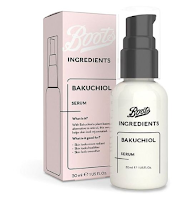 |
| Boots Ingredients, Bakuchiol Serum |
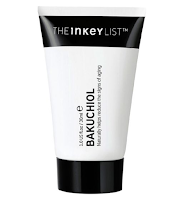 |
| The Inkey List, Bakuchiol Moisturiser |
I don’t use it every day because I have a skincare regime including different ingredients to reduce my hyperpigmented areas. If you want to know what I am using let me know in the comments and I will prepare a post about that.
What do you think about Bakuchiol? Do you plan to introduce yourself in your routine?
Bear in mind that some of the links in this post are affiliate links and if you go through them to make a purchase I will earn a commission. Keep in mind that I link these companies and their products because of their quality and not because of the commission I receive from your purchases. The decision is yours, and whether or not you decide to buy something is completely up to you.

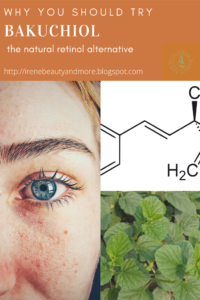
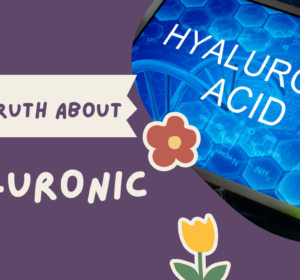

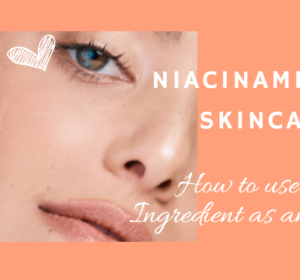
10 Comments
Tisha
4 May, 2021 at 18:25I have never heard of this but I'm interested! I am in the sun a lot especially in the summer so this would go great into my skin care routine!
Jasmine M
4 May, 2021 at 18:48I've never heard of Bakuchiol, but it sounds like it has a lot of benefits. I love that it works to increase the strength of the cells against oxidative stress. I'm going to have to add some products with this to my skincare routine.
Mama Maggie's Kitchen
6 May, 2021 at 22:07This is the first time I heard about Bakuchiol. But based on this post, it works really well. I will definitely check this out.
Get Your Holiday On
7 May, 2021 at 18:12I love finding out about new products. This is helpful. Thanks for sharing!
Irene RESA
9 May, 2021 at 12:24It is not vey common yet, but I am sure it will become popular soon
Irene RESA
9 May, 2021 at 12:25You will not regret of adding it to your routine
Irene RESA
9 May, 2021 at 12:25Thank you for reading
Irene RESA
9 May, 2021 at 12:26I highly recommend as a retinol alternative